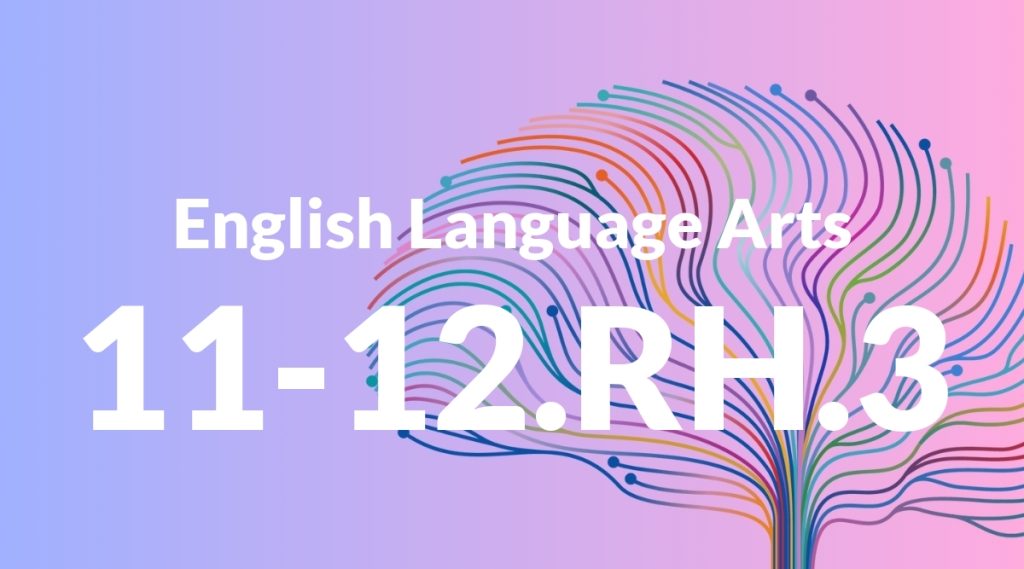Standard: 11-12.RH.3 – Evaluate various explanations for actions or events and determine which explanation best accords with textual evidence, acknowledging where the text leaves matters uncertain.
Grade level: Grade 11-12
Subject: English Language Arts
Domain: History/Social Studies
Teacher Overview
This standard emphasizes the importance of evaluating multiple explanations for historical events and determining which is best supported by textual evidence. It is crucial for developing critical thinking and analytical skills in students, preparing them for higher-level academic work and informed citizenship. Students should be familiar with identifying main ideas and supporting details, have a basic understanding of historical contexts, and possess initial skills in critical thinking and textual analysis.
Students will move on to develop more nuanced and sophisticated analytical skills, enabling them to evaluate complex texts and arguments critically and construct well-supported arguments of their own.
Common Misconception 1
A common misconception is that all explanations are equally valid. This is incorrect because explanations must be evaluated based on the strength and credibility of the supporting evidence.
Intervention 1
Engage students in activities that require them to compare different sources and evaluate the credibility and relevance of the evidence provided, such as analyzing primary versus secondary sources.
Common Misconception 2
Another common misconception is that if a text leaves matters uncertain, it is unreliable. This is not necessarily true as historical texts often reflect the complexity and partial nature of historical evidence.
Intervention 2
Encourage students to explore the reasons behind the uncertainty in texts and to consider how historians deal with incomplete evidence, perhaps through case studies or examining historiographical debates.
Prerequisite Knowledge
Students should have a foundational understanding of how to identify main ideas and supporting details in a text, basic knowledge of historical events and contexts, and skills in critical thinking and textual analysis.
Subsequent Knowledge
After mastering this standard, students will develop advanced skills in critical analysis, enabling them to engage in more sophisticated evaluations of complex texts and arguments, and to construct well-supported, nuanced arguments of their own.
Instructional Activities
- Comparing different historians’ interpretations of a single event
- Analyzing primary and secondary sources for bias and credibility
- Debating the causes of a historical event based on textual evidence
- Writing essays that evaluate different explanations for historical events
- Conducting research projects that require critical evaluation of sources




